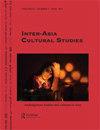斯里兰卡黑暗旅游的政治
IF 0.4
4区 社会学
Q4 ANTHROPOLOGY
引用次数: 0
摘要
战后斯里兰卡见证了北部旅游业的复兴。在这片仍被数十年的暴力所破坏的有争议的地区,旅游倡议正在形成。然而,旅游业是在对领土和生活世界的主权要求分裂、往往是排他性的背景下重新配置的。很明显,黑暗旅游的消费行为很普遍,形成了对战争的精心纪念;安抚多数僧伽罗人的情绪。这些做法使军队变得有价值,使统治和服从的关系变得有效。此外,由于军队是卓越的统治者,这种严酷的现实也导致了流离失所、排斥和监视的叙述。文章认为,北方在军队统治下的转型,加上积极的发展,构成了死亡资本主义。本文的早期版本在tonduc Thang大学等组织的2021年“社会科学与人文科学创新”(ISSH)会议上在线发布。附加信息:deopriya shomedeopriya shomedeopriya Shome是加尔各答Jadavpur大学国际关系系的博士生。他目前正在研究印度平台劳动力的增长情况。作为一名年轻的政治学家,他就不同的主题发表了一些受欢迎的文章。主要研究方向为平台劳动、黑暗旅游、数字政治传播、数字政治经济学、马克思主义等。本文章由计算机程序翻译,如有差异,请以英文原文为准。
The Politics of dark tourism in Sri Lanka
ABSTRACTPost-war Sri Lanka has witnessed revitalised tourism in the North. Tourism initiatives are now taking shape within a contested terrain still marred by decades of violence. Yet, tourism is reconfigured in the background of divided and often exclusive sovereign claims to territory and life-worlds. It is evident that dark tourism’s consumptive practices are prevalent, instituting careful memorialisation of war; mollifying the sensibilities of the Sinhala majority. These practices valorise the Army and effectuate relations of supremacy and subjection. Moreover, with the Army as pre-eminent rulers this stark reality also entails narratives of displacement, exclusion, and surveillance. The paper argues that transformation of the North as governed by the Army alongside aggressive development constitutes necrocapitalism.KEYWORDS: Sri Lankadark tourismmemorialisationarmyethnic conflictnecrocapitalism AcknowledgementAn earlier version of this paper was presented online at the “Innovations in the Social Sciences and Humanities” (ISSH) conference 2021, organised by Ton Duc Thang University et al.Additional informationNotes on contributorsDebopriya ShomeDebopriya Shome is a PhD student at the Department of International Relations, Jadavpur University, Kolkata. He is currently researching the growth of platform labour in India. As a young political scientist, he has contributed popular pieces on different subjects. His research interests include platform labour, dark tourism, digital political communication, digital political economy, Marxism, etc.
求助全文
通过发布文献求助,成功后即可免费获取论文全文。
去求助
来源期刊

Inter-Asia Cultural Studies
Multiple-
CiteScore
0.90
自引率
20.00%
发文量
22
期刊介绍:
The cultural question is among the most important yet difficult subjects facing inter-Asia today. Throughout the 20th century, worldwide competition over capital, colonial history, and the Cold War has jeopardized interactions among cultures. Globalization of technology, regionalization of economy and the end of the Cold War have opened up a unique opportunity for cultural exchanges to take place. In response to global cultural changes, cultural studies has emerged internationally as an energetic field of scholarship. Inter-Asia Cultural Studies gives a long overdue voice, throughout the global intellectual community, to those concerned with inter-Asia processes.
 求助内容:
求助内容: 应助结果提醒方式:
应助结果提醒方式:


